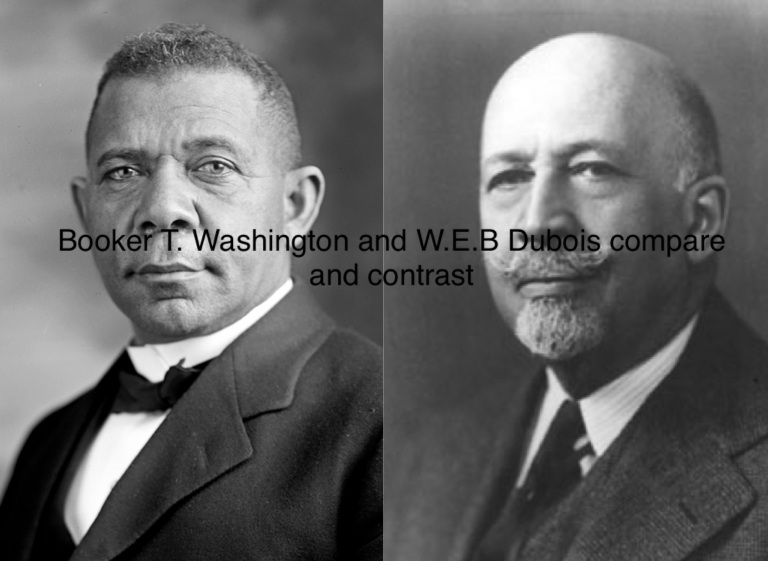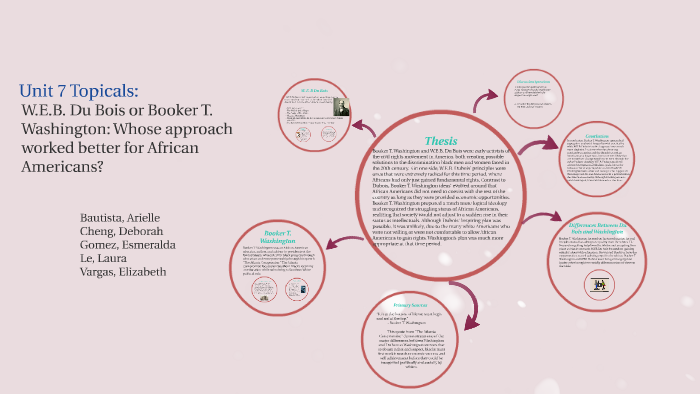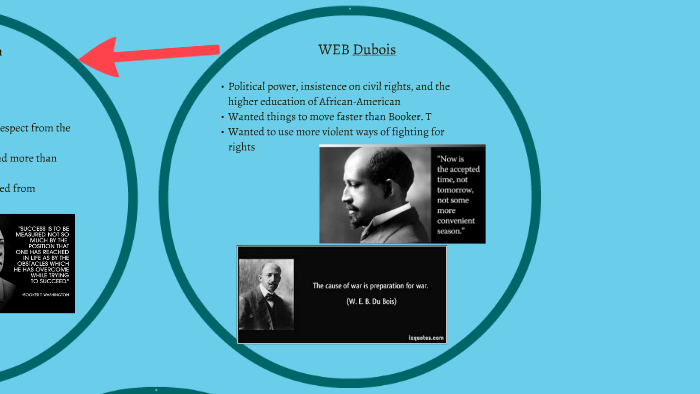Booker T. Washington and W.E.B. Du Bois were two influential figures in the history of African American civil rights. Both men were born in the post-Civil War era and were dedicated to advancing the rights of black people in the United States. However, they had different approaches to achieving this goal, which is reflected in their attitudes towards education, political activism, and race relations.
Booker T. Washington was born into slavery in 1856 and became one of the most prominent black leaders of his time. He believed that education was the key to improving the lives of black people and founded the Tuskegee Normal and Industrial Institute in Alabama. Washington believed that black people should focus on vocational education and economic self-sufficiency rather than trying to challenge segregation and discrimination. He believed that this approach would win the respect and admiration of white people, and that black people could then gain their rights through negotiation and hard work.
W.E.B. Du Bois, on the other hand, was a more radical figure who believed in the power of political activism and confrontation to achieve change. Born in 1868, he was the first African American to earn a Ph.D. from Harvard University. Du Bois believed that education was important, but he also believed that black people should not be afraid to challenge segregation and discrimination head-on. He was a founding member of the National Association for the Advancement of Colored People (NAACP) and a vocal advocate for civil rights and social justice.
One of the main differences between Washington and Du Bois was their attitude towards race relations. Washington believed in the idea of "accommodationism," which held that black people should accept segregation and discrimination in the short term in order to gain the respect and admiration of white people. He believed that this would eventually lead to greater equality and the end of segregation. Du Bois, on the other hand, believed in the idea of "challenging segregation," which held that black people should actively confront segregation and discrimination in order to achieve change.
Another difference between the two men was their approach to education. Washington believed that vocational education was more important than traditional academic subjects, while Du Bois believed that a classical education was essential for empowering black people. Du Bois argued that a classical education would give black people the skills and knowledge they needed to challenge segregation and discrimination, while Washington believed that vocational education would provide practical skills that would help black people become economically self-sufficient.
In conclusion, Booker T. Washington and W.E.B. Du Bois were two influential figures in the history of African American civil rights. While they both believed in the importance of education and the advancement of black people, they had different approaches to achieving these goals. Washington believed in the power of accommodationism and vocational education, while Du Bois believed in the power of political activism and a classical education.








